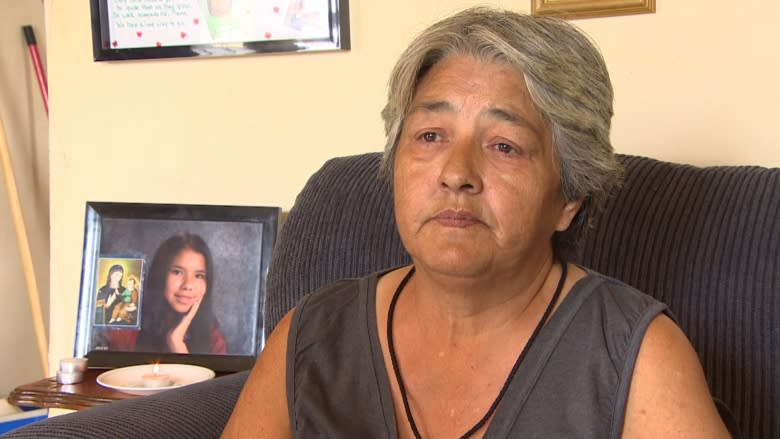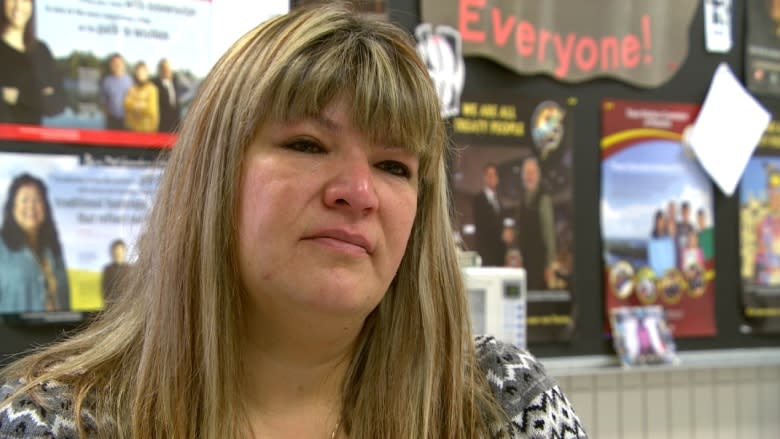Tina Fontaine's family frustrated but hopeful before MMIW pre-inquiry meeting
Thelma Favel is feeling conflicted over the national inquiry into murdered and missing women as the pre-inquiry meeting gets underway in Winnipeg on Monday.
Tina Fontaine's great aunt said sometimes she gets angry thinking about it.
"People were talking about the national inquiry for so long, but it wasn't until after Tina was murdered was when it really went through," Favel said.
Tina Fontaine was pulled from the Red River in August 2014 and her death became a flashpoint for Canadians on the MMIW issue. Calls were renewed for a national inquiry. The federal government committed to it in December 2015.
"All of those women that went missing and were murdered; they were here for a reason too. So why wasn't it done even before Tina?" she said.
Favel is talking about the more than 1,200 unsolved cases of murdered and missing indigenous women in Canada.
"Because they were all human beings. They all mattered," said Favel.
Winnipeg is the 11th stop for pre-inquiry meetings. Families are being asked for input on what the inquiry should look like and who should be involved.
Indigenous and Northern Affairs Minister Carolyn Bennett will meet with family members on Monday. She will speak to reporters during the noon hour.
Bernadette Smith witnessed the first meeting in Ottawa.
Her sister, Claudette Osborne, has been missing since 2008. She said it felt like the meeting was disorganized and families weren't prepared.
"People really didn't understand," Smith said about pre-inquiry expectations. "That first meeting, there was families coming in and telling their whole story."
Smith said changes have been made. Now, family dialogue sessions are held the day before the pre-inquiry meeting to help families understand what input they will be providing.
"I'm feeling pretty good about it. I've talked to other families that have already been through the process, and you know, it's still flawed, but they're learning as they go along," Smith said. "We're hoping that by the time they get to the actual inquiry that they've learned so much more."
She's also looking forward to sharing her own ideas.
"It's got to be independent. The provinces have a responsibility as well as the police and that we need a family advisory committee," she said.
But Smith said the biggest decision will be selecting a commissioner: "It's needs to be an indigenous woman leading it."
As for Favel, she's looking at the price tag of what a national inquiry could cost. She thinks that would be better spent on programs, resources and 24-hour safe spaces for youth in urban centres and on reserve.
But she acknowledges the potential impact an inquiry could have.
"This thing will never bring Tina back, but if it's going to help another child, then her death is not for nothing," she said.



